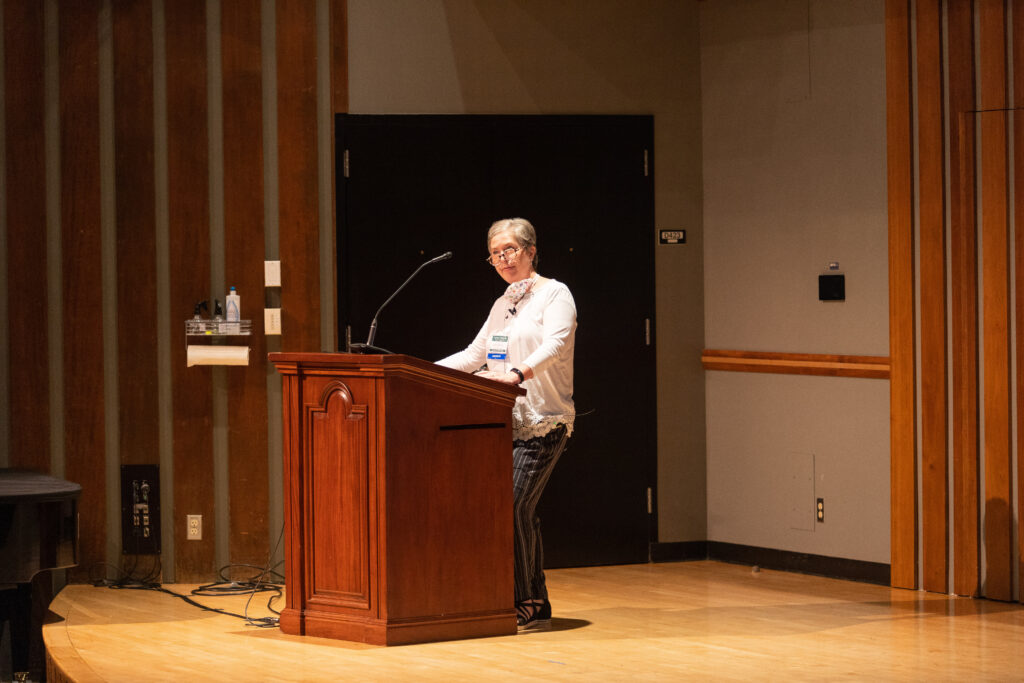By Emma Keddington
Editor’s note: Education Week coverage can be found in this section of the website.

Women’s influence has often been left out of humanity’s history, but that doesn’t mean their presence and impact was absent.
Such was the topic of discussion at an opening session of BYU Education Week, where dozens of individuals gathered at Madsen Recital Hall to hear Jane G. Hinckley delve deep into the idea that there are many important women who should no longer be left out of the narrative of human history.
Hinckley, an adjunct professor in the BYU College of Humanities, offered a glimpse into the lives of three women, Lady Mary Wortley Montagu, Angelica Kauffman and Hannah More. She shared their individual but shared stories of hardship and persistence.
Hinckley first explored the life of Lady Mary Wortley Montagu, an 18th century poet “permanently scarred by smallpox,” who ultimately became the first advocate for smallpox inoculation in England.
Hinckley discussed how this specific story is unique and relevant to today, as both Lady Mary and the women of today have dealt with the issues associated with a global pandemic.
“I’m so grateful that a young mother was brave enough to ask a question, which led to life changing, saving answers,” Hinckley said of Lady Mary’s role in bringing the Turkish-founded inoculation practices to England.
Hinckley then discussed the life and influence of Angelica Kauffman, a painter of historic portraits. She was a woman subject to a duplicitous marriage (her husband only married her to secure her money), satire, and restriction of access, yet one who “persisted” to become one of the founding mothers of historical art.
Kauffman waged an artistic war in a male-dominated world, and proved that “creative women can be a part of serious art.”
As her final subject, Hinckley described the life of Hannah More, a writer, abolitionist, educator and social activist.
“She couldn’t vote, but used her pen to influence those who could,” Hinckley said.
At the end of each woman’s individual discourse, Hinckley shared her heartfelt gratitude toward their influence and memory. As she described More’s impact regarding the education of English children, Hinckley’s eyes teared up and voice cracked.
“I personally believe that More was inspired to teach a nation to read in preparation for the arrival of my ancestor Joseph Fielding, who came to England as one of the first missionaries five years after her death.”
Many of the audience members were deeply moved by Hinckley’s heartfelt dialog.
“There are so many unknown, valiant, successful women to learn about!” said Norma Jaeger, who traveled to BYU Education Week from Meridian, Idaho.
Hinckley ended her lecture by expressing conviction and admiration.
“(These women) have inspired me to travel the road less traveled,” she said. “We owe more than we can dream to these far-seeing wonder women of more than a century ago.”




